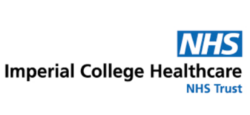Researching with local communities to inform a hospital redevelopment
Kaleidoscope partnered with the Nuffield Trust to help Imperial College Healthcare NHS Trust speak to their local community about redeveloping a hospital. We designed and delivered a programme of user-led research to understand local views and to inform the plans.
The challenge
The Trust is at the early stages of a long process to redevelop St Mary’s Hospital in Paddington. Over the years the Trust has had many conversations about developing their estate, and local communities had a level of weariness and cynicism about the topic.
The Trust also has an ambition to be the most user focused organisation in the NHS. The outline for this work talked about the values of the Trust and their wish for this work to start a continuing conversation about the redevelopment. They also had a tight timeframe – a 10 week window from kick off to final report.
Kaleidoscope partnered with the Nuffield Trust to respond to the brief. The Nuffield Team has significant experience in redevelopment in the NHS. The Kaleidoscope team drew on our extensive experience designing user led processes and research to propose a research programme led by the key communities affected by the redevelopment. Due to the constraints arising from Covid-19 we collected all data digitally – including delivering three digital workshops.
This piece of research was commissioned at the start of June 2020 and completed by mid August 2020.
Our approach
We designed a research programme consisting of a survey, three workshops, community outreach, semi structured interviews and a literature review of existing Trust material relating to the redevelopment.
Our research was informed by a user group made up of staff and members of the Trust’s lay forum. reflecting the ambition of Trust and the hospital to be led by the needs of the community. The data collection took place over four weeks. In that time we had over 360 responses from community members to gather qualitative and quantitative data.
We based our research questions on the Trust’s four values: kind, collaborative, expert and aspirational. These had been already been created through extensive engagement and were fundamentally important to the organisation. Starting with these values, we explored topics such as what a kind hospital looks like, how spaces can be designed for collaboration and how buildings can give confidence that experts are on hand.
We concluded the research with two final workshops: one summarising the report findings and thinking about the next steps for key members of the Trust’s management team, and the second an expert seminar hosted by the Nuffield Trust. This focused on lessons learned from previous redevelopments in the NHS and featured a guest panel of experts drawn from the NHS and beyond.
Read the report on getting maximum involvement and input to the redevelopment of the hospitals.
So what’s changed?
The purpose of this work was two-fold: to gain insight for the Trust about people’s thoughts and feelings about the redevelopment of St Mary’s Hospital. And to inform how the Trust will continue to engage with its communities as part of the redevelopment.
We collected a lot of data on the thoughts and feelings of staff, patients and local residents. As well as concrete findings around the design and finishes of the hospital, this research flagged the importance of linking the redevelopment to the Trust’s wider strategy. For example, linking the redevelopment to their role as ‘anchor institution’ with real ties to its local community.
We hosted a closing workshop to explore how the Trust could take the ideas forward in a way that reflected its values. There we challenged participants to think about what they might be able to do with some of the data now, rather than waiting for a new hospital.
We also were able to present the learning from the processes we used. That included insight into the barriers that prevented people from participating, we fed that back to the team who commissioned this work. They are using the information to shape their future involvement programme. Their aim is to encourage diversity, depth and breadth in the ongoing conversations they have with their communities.
Read Richard Taunt’s blog on how staff, patients and local communities were involved in the conversation about the redevelopment of St Mary’s hospital.
What the client thinks
“We wanted to start a new and more inclusive conversation with staff, patients, and local community groups about what they want from a hospital for the future, starting with St Mary’s as the site most in need of redevelopment, to help guide our work. It was important to us for the conversation to go beyond the buildings themselves and to be clearly based on our Trust values.
“From a very early stage it was clear that Kaleidoscope Health and Care and the Nuffield Trust understood and shared our approach and could work with us to deliver this early part of our involvement programme. We’ve learnt a lot from this project, not just in terms of its findings on user insights, but also from working with the Kaleidoscope team about how we can make our future involvement activities more effective.”
Mick Fisher, Head of Strategic Communications
“Working with Kaleidoscope has not only opened up wide and valuable conversations about the future, the insights gathered are helping inform the Trust’s work here and now.”
Tanya Hughes, Deputy Chair, Strategic Lay Forum
“The team at Kaleidoscope and the Nuffield Trust has helped us take our approach to user-led design to a new level, one on which we will build for the future. They also brought us valuable insights from their depth of experience in hospital design.. They helped us think in different ways and were a pleasure to work with.”
Matthew Tully, Director of Redevelopment

